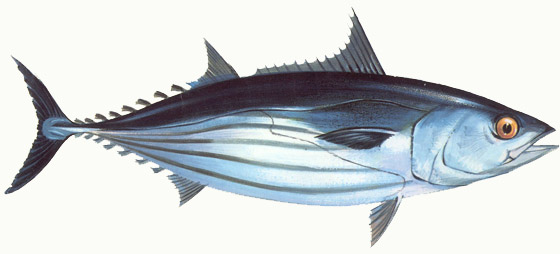Indonesia is an archipelago country with 81,000 km of coastline (Dahuri et al., 2001), hence provides vary high fisheries resources. Indonesia has been known as the number one country for tuna production (Sunoko and Wen Huang, 2014). Sendang Biru is the part of Indian Ocean in East Java Indonesia which geographically and oceanography, is reported has high prospective in tuna capture fisheries. This waters was dominated by high economic value tuna, i.e. Yellowfin tuna (Thunnus albacares) and Skipjack tuna (Katsuwonus pelamis) within catch range of 425–1,360 kg trip-1. (Hidayati et al., 2018;
Wiadnya et al., 2018). Among the United Nation Agend a regarding to the Sustainable development Goals in 2030 is Conserve and sustainably use the oceans, seas and marine resources (FAO, 2018). The dynamic growth of global fisheries market in development country should be linear with the assessment the fisheries stocks. The assessment is important to evaluate the safety impacts and health risks of fish borne zoonotic parasites as well as to ensuring that wild catch fish meet the health certification for export and import. (Watterson et al., 2008; ADW, 2014). Fish parasites were reported to be found higher in marine waters than freshwaters since marine eco- systems show the long-term stability (Palm, 2011 and Rohde, 2002) investigated that 100,000 fish para-sites were found in about 30,000 sh species (3.3 parasite species/fish). Fish diversity indices can be used as an information of sh parasite community related to the environmental conditions the marine pollutants may affect the immune response of the host that lead the intensity of parasites infection (Sures, 2008; Morley, 2010).
Regular evaluation the zoonotic and heteroxenous parasites in commercial fish catch important, such Anisakis that reported to found in Skipjack tuna (Hibur et al., 2016; Kuhn et al., 2013). Moreover, the parasitic infections may decrease the production and quality of the fish and harm to people who consume them (Palm et al.,1985). Marine pollution in Indonesia were reported come from by several inshore and offshore anthropogenic activities included industrialization; fishing and shipping traffic; aquaculture and intensive farming; urbanization and human settlement (Todd et al., 2010). Furthermore, monitoring of Skipjack tuna (Katsuwonus pelamis) health status using parasitological approach in Indonesia that has been developing any sectors is crucially relevant for marine bioconservation and sustainable fisheries.
Sendang Biru waters is the part of Indian Ocean in East Java Indonesia with high capture of tuna. Monitoring of Skipjack tuna (Katsuwonus pelamis) health status using parasitological approach have investigated for supporting the marine bioconservation and sustainable fisheries. Skipjack tunas that landed at Sendang Biru Port Fisheries were directly examined and preserved prior to further analysis of parasitological parameters including prevalence (P), mean intensity (MI) and heteroxenous/monoxenous (H/M) ratios. Then, the calculated of P and MI were qualitatively expressed as infection status refer to infection rate based on what is stipulated by Williams and Bunkley-Williams. There were found five genera of parasites, i.e. Necator, Trichinella, Capillaria, Rhadinorhynchus, and Eimeria. The Rhadinorhynchus was observed as the highest infectious parasite (P=83%; MI= 83.16 individuals/infected fish). The infection status of intestinal parasites in Skipjack tuna from Sendang Biru Waters were categorized low, often and moderate infection with H/M ratio was 3:2.
Author: Agoes Soegianto
Detail writing about this research can be seen at
https://www.researchgate.net/publication/335528488_Infection_status_of_intestinal_parasites_in_Skipjack_Tuna_Katsuwonus_pelamis_from_Sendang_Biru_Waters_Indian_Ocean_Indonesia_1
D. Hidayati , H. Y.
Prabowo dan A. Soegianto. 2019. Infection
status of intestinal parasites in Skipjack Tuna (Katsuwonus pelamis) from
Sendang Biru Waters, Indian Ocean, Indonesia. Ecology,
Environment and Conservation Paper (EM International), Vol 25, July Suppl.
Issue, 2019; Page No.(S100-S105).





